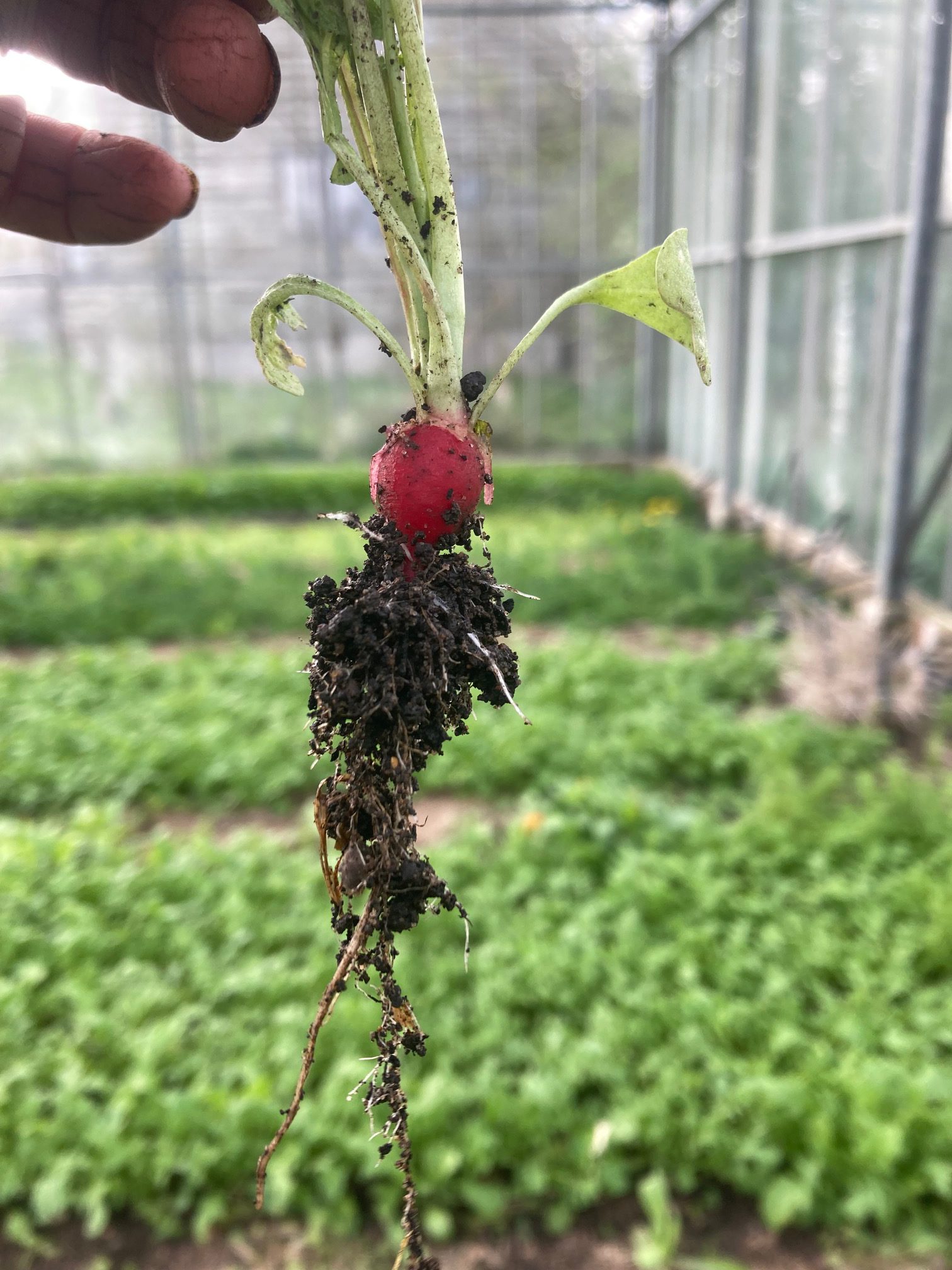
“Had we still been ploughing now, we would’ve had two or three terrible seasons and lots of soil damage. The way I farm now has softened that blow. I wouldn’t want to be cultivating the land like we used to.”
Jayne Arnold is a grower who is really pushing the boundaries of soil health and mamagement. Based on a 12 acre organic vegetable farm in Worcestershire, she is constantly striving to find ways to improve the diversity, depth, quality and carbon content of their soils. Growing for their own veg box scheme, the farm also has a few sheep, an orchard, agroforestry and makes plenty of compost.
In this new Case Study, we learn how Oxton Organics is balancing a productive far, producing local food, whilst constantly improving soil health and quality through a voracious appetite for knowledge and an approach
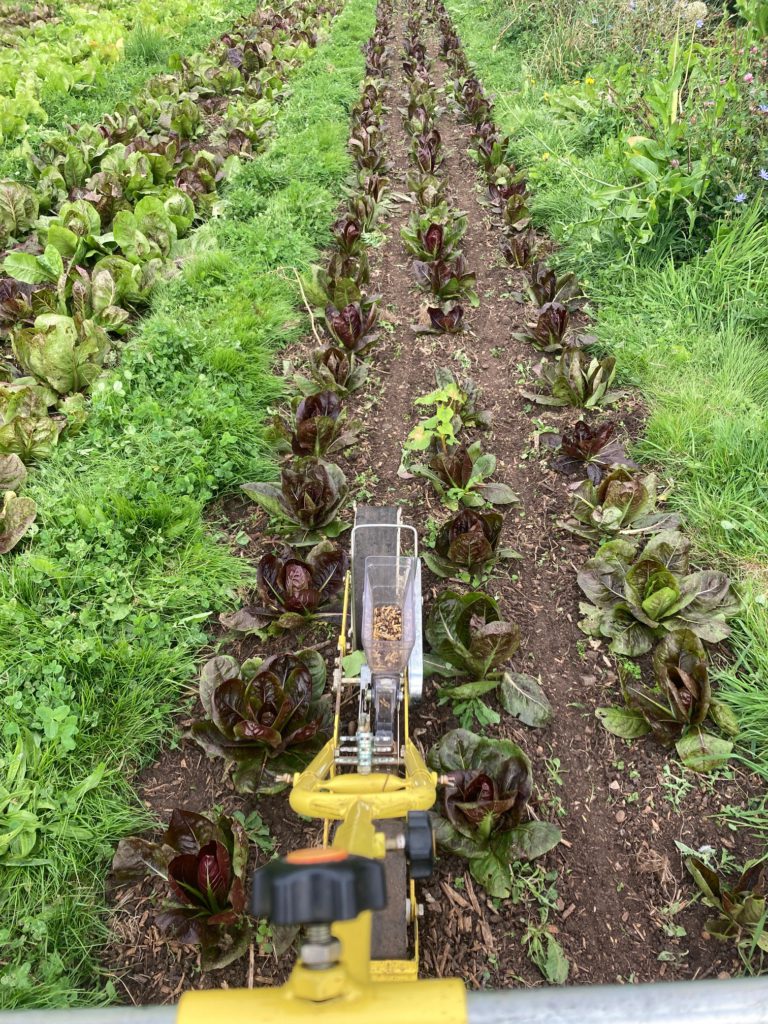
Whilst the farm has been organic for a long time, it’s only in the last 7-8 years that this new approach to soil management started, producing some really impressive results. The approach is underpinned by applying high quality compost, biostimulants, and covering the soil as much as possible through mulches, compost and green manures.
The sheep play an important role, and the pastures they’re on have improved significantly since the species mix and stocking regime has changed. This has resulted in not just better pastures and better soil helath, but much more biodiversity too, as Jayne notes:
“In the years after sowing the pasture it was predominantly grasses, white clover, and yarrow, with a little ribwort, burnet and yellow trefoil. Now there is much more diversity there are flowers throughout summer and autumn, including dandelions, wild carrot, yarrow, knapweed, oxeye daisy and much more. A few bee orchids and pyramidal orchid appeared four years ago and returned every year since. We had never seen orchids on the farm before! Butterflies and other pollinating insects are also more abundant.”
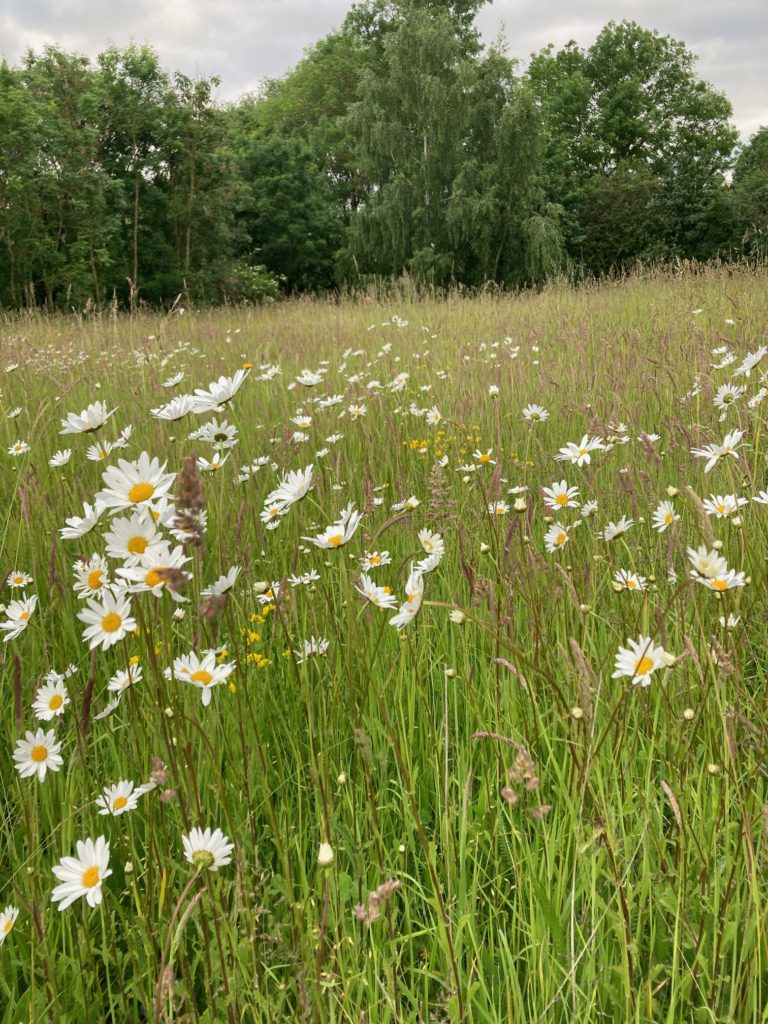
Wildlife abounds above and below ground, from the tall hedges and lines of willow coppice, to the flowers of the pastures and the cropland soil teeming with life. “There are so many worms in the soil, it’s hard to avoid them when transplanting crops!” Jayne says.
Soil Organic Matter levels are rising, and distributing more evenly through the soil profile. Structure is improving, soil colouration is more even and deeper through the profile. The action of worms and perennial plants helps to draw carbon down in the soil profile – and that means it is also more stable. Carbon sequestered in to the soil like this is a proper drawdown of atmospheric carbon; if it’s not released then it is stable and locked away.
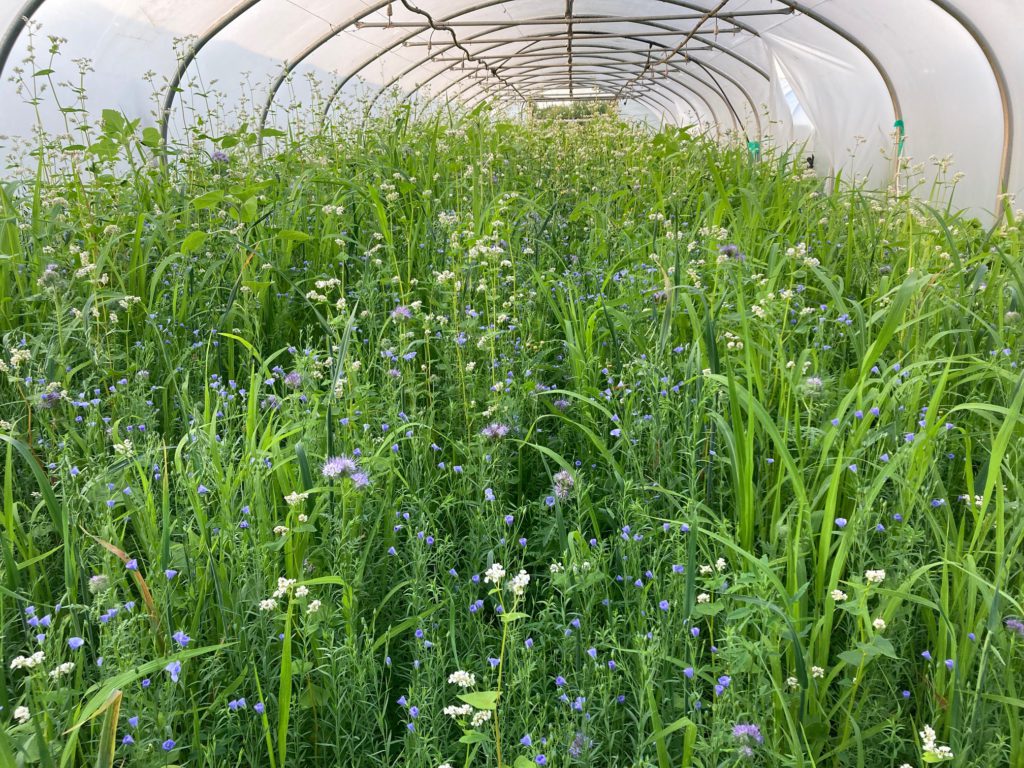
Jayne notes that weather patterns have changed, with more frequent extreme rainfall events. “The up and downness of the weather has changed a lot“, she says. Building resilience in the stability of farm soils is essential in helping to mitigate such risks that all growers are experiencing from a changing climate. Soils that are higher in carbon, have a mulch or living cover, and have better structure will be much more resilient to the effects of both heavy rain and drought.
The farm’s focus on soil management underpins all the positive aspects outputs of the farm – quality food, flood resilience, carbon sequestration, biodiversity, and indeed sheer enjoyment and intrigue that gets growers out of bed in the morning. A refreshing look at green manures, founded on experience and observation, demonstrates one example of this: “you won’t build a fungal dominant soil with legumes. Plants will reject mycorrhizal associations if there’s too much Nitrogen in the system. You need to build bacteria that naturally fix Nitrogen and be more balanced. You don’t see many legumes in the hedgerow – yet that’s all green” says Jayne.
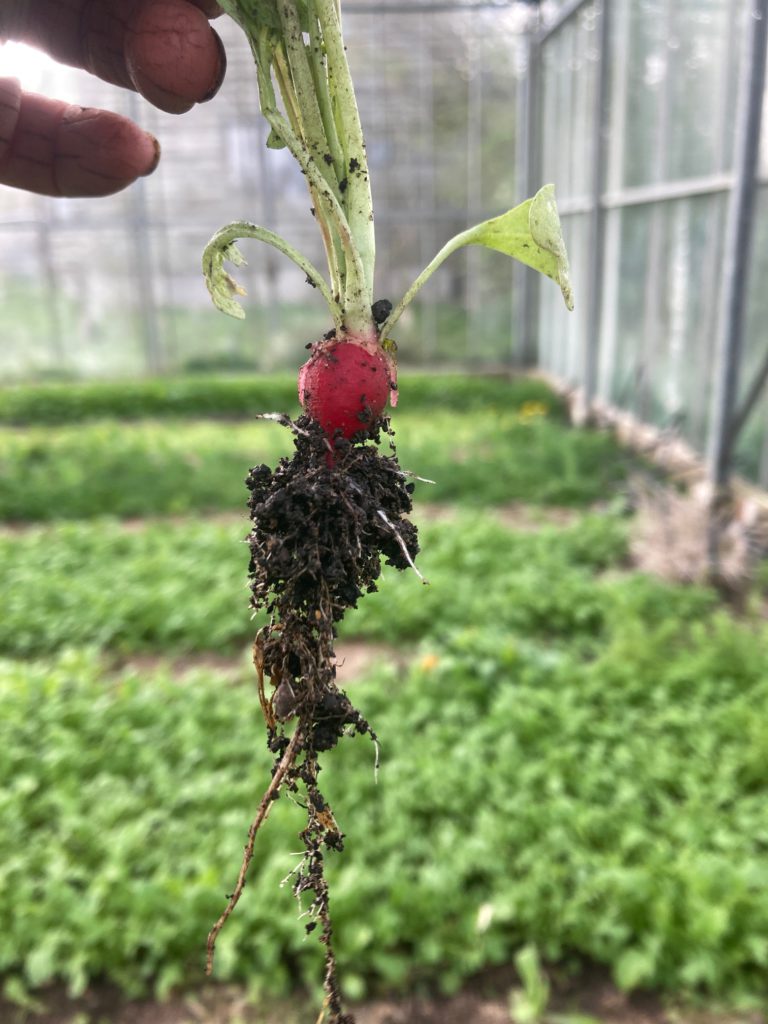
Managing carbon is also part of the business strategy, using an electric van for deliveries, minimising any cultivations, ensuring lots of carbon sequestration, and reducing inputs. With so much carbon being absorbed on the farm and being turned in to soil organic matter, the farm is really demonstrating how to grow in a way that builds capital for the future whilst producing great quality food and continuing to explore and push the boundaries.
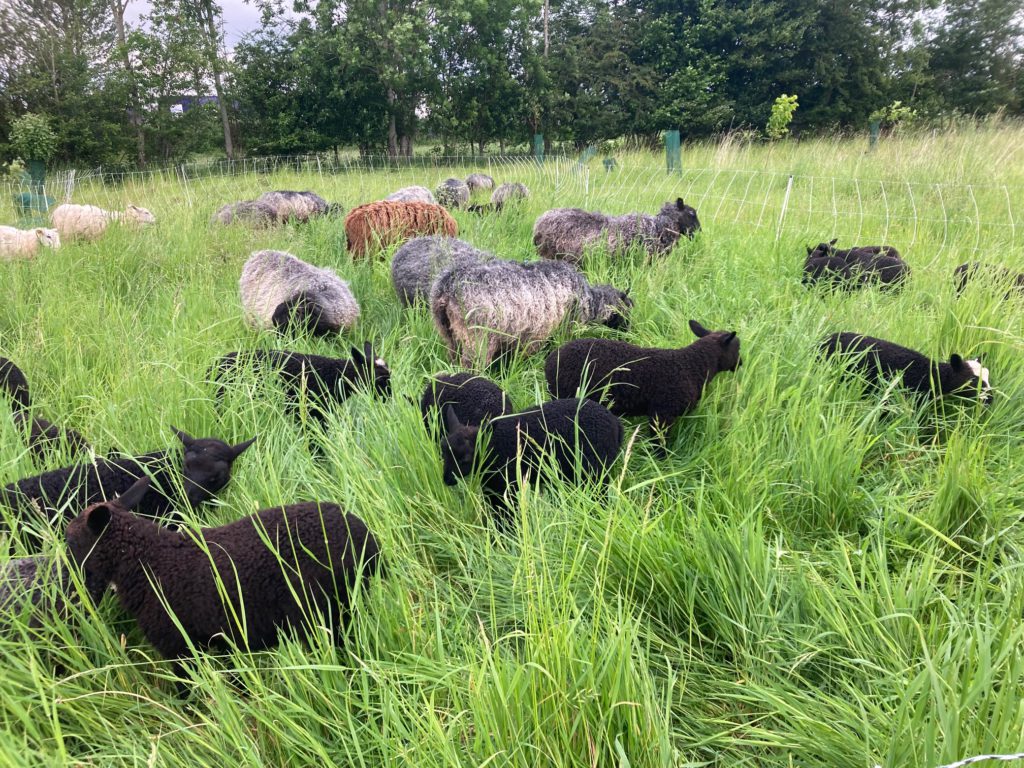
With thanks to Jayne Arnold for the photos and the interview. Written by Jonathan Smith.


Recent Comments